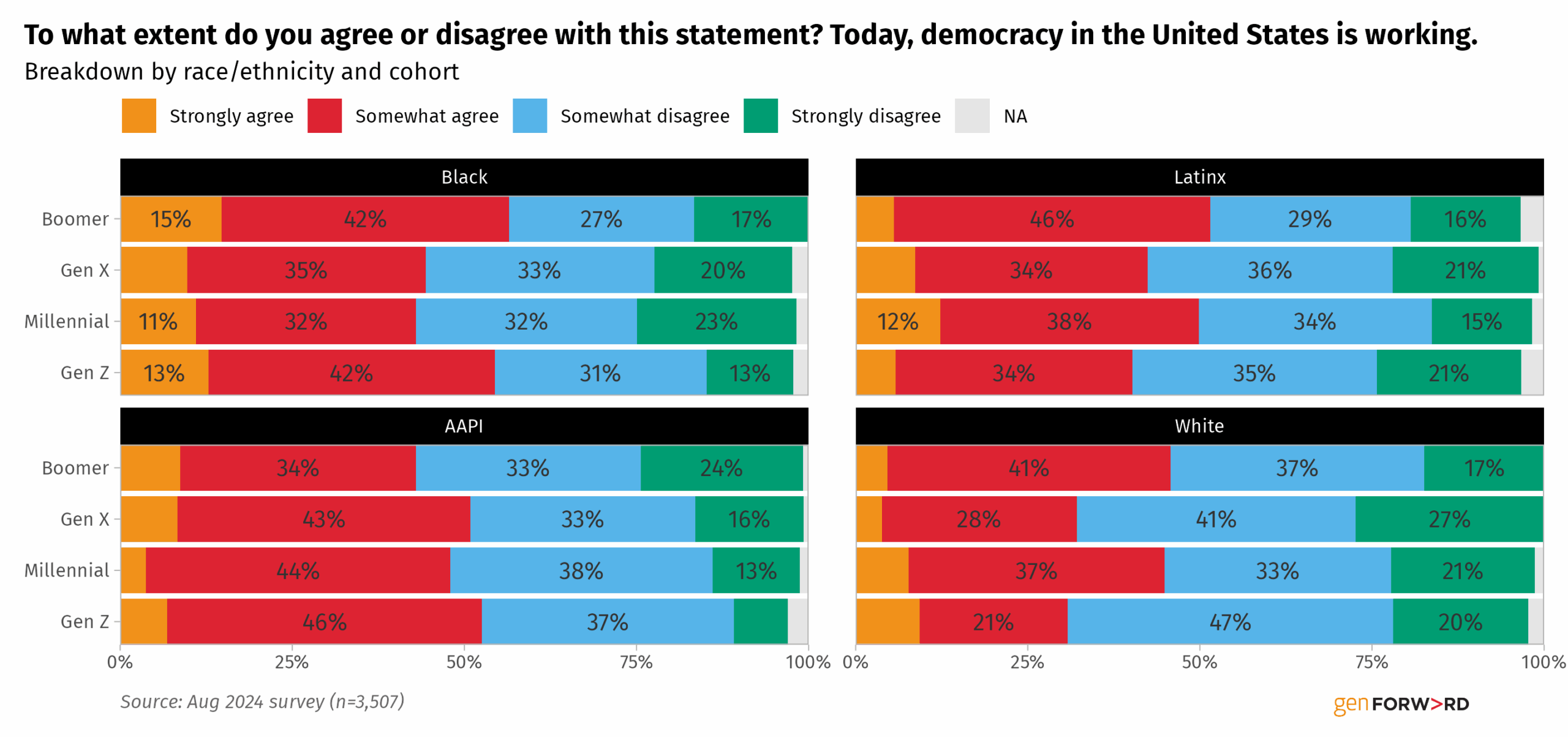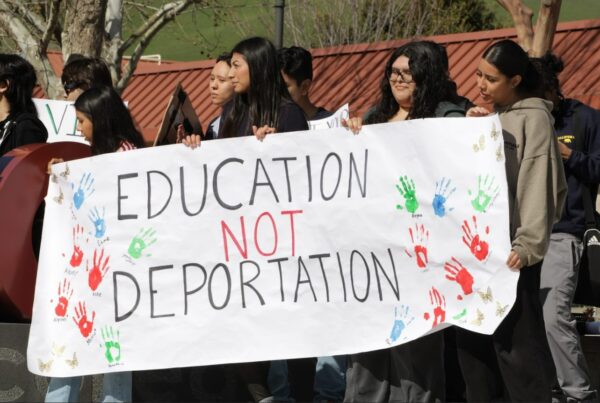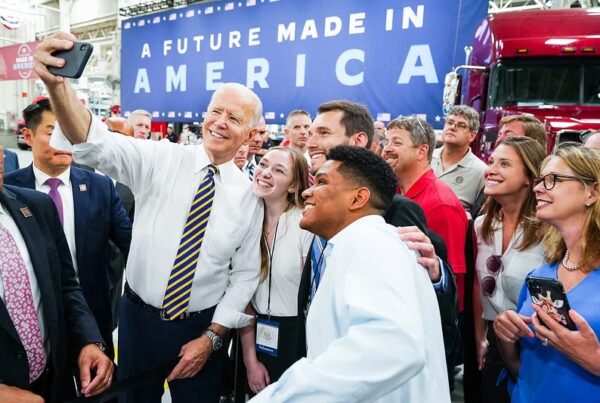By Diane Wong
July 14, 2025
On July 1 of 2025, Senate Republicans passed Trump’s sweeping tax bill, with JD Vance casting the tie-breaking vote after more than twenty four hours of debate. The multi-trillion dollar tax and spending package could impact millions of Americans’ wallets—students, seniors, veterans, children, parents, and especially those who rely on social safety net programs such as Medicaid and SNAP.
In addition to curbing environmental rules and boosting immigration enforcement spending, the legislation imposes significant changes to the federal student loan program, including major cuts to pell grants and new caps on the amount students can borrow in federal student loans. These changes will increase the debt burden for thousands of students and worsen the racial wealth gaps for students who come from families with less generational wealth. The bill also phases out current repayment plans, such as Biden’s SAVE Plan, and restricts new borrowers to only two options for paying off their loans, either a new plan based on annual income or a standard repayment plan.
These changes come at a time when Gen Z already have significant concerns about their financial futures. Genforward Survey revealed in August of 2024 that Gen Z were the most likely of all cohorts to rate the country’s economic conditions as poor. In fact, 78% of Black, 49% Asian, 81% of Latinx, and 56% of white Gen Z respondents expressed concern about being unable to pay an unexpected $400 bill. In the same Genforward survey, one out of three Gen Z adults said they were worried about being able to pay their rent or mortgage on time. Living with economic precarity and financial stress significantly limits young people’s ability to save, invest, and achieve traditional life milestones such as homeownership.
These views on the economy were echoed in focus group discussions conducted by the Genforward research team with young Black men in swing states in October 2024, just before the election. When asked about the most important issue facing the country, one respondent said that the single biggest issue was homelessness, “For me it’s homelessness in the area that I’m living in. People are constantly struggling to sustain a lifestyle, and if they can’t sustain their lifestyle then they can’t take care of their families. And then I’m seeing more and more family, friends, neighbors not being able to pay for anything.” One participant expressed plans to vote for Trump because of the economy, “We ain’t got no good choices. But personally, I’m gonna go with Trump only because he was good at the economic part.”

In addition to concerns about the economy, the October 2024 Genforward Survey found that inflation ranked as the top election issue for most Gen Z respondents. In fact, 49% of Black, 33% of Asian, 51% of Latinx, and 58% of white Gen Z respondents said that inflation was the most important policy issue to address. Inflation being a priority comes as no surprise, as many have shared their challenges with rising living costs, from housing and car insurance to gas and other daily essentials. In the lead-up to the November elections, many young people took to TikTok to vent their inflation frustrations. One user, unable to move out of his family home in New Jersey due to rising rents, posted, “It’s a Saturday night and I’m here at home because it’s free.”
However, not everyone has the option of relying on their parents. In one of the Genforward focus groups, a participant discussed his experience with financial precarity, “I’m a Product Technician for a company that makes parts for Honda and stuff like that. It seems like every time we get a little raise, a fifty cent raise, two dollar raise, a dollar raise, the cost of living goes up. Every time we get a gain, it’s something else to pull us back down to where we gotta fight and struggle just to keep our head above the water.” Another participant agreed and added, “I know minimum wage has went up barely, but corporate wage has went up over 1000% since the 70s.”

Our data indicates that Gen Z are feeling disaffected and increasingly polarized—frustrated with the current political system, yet still holding strong beliefs about the future of American democracy. Crucially, Genforward data reveals that one out of three Gen Z respondents still believe that democracy in the United States is somewhat working. One focus group participant directly linked rising inflation to the government and decisions being made in Washington D.C., sharing: “We get shot down a lot. We already got the world against us. It is hard for us to live. The gas prices, the cost of living, the economy. Bruh, we are failing each other because we allowing a government to overpower us when we make the power of the nation.”

For Democrats, the decline in support among Gen Z voters is a significant concern and a wake up call that brat summer memes are not enough to win the hearts and minds of young voters. The recent energy surrounding Zohran Mandani’s victory as the Democratic nominee for Mayor of New York City shows that Gen Z voters care deeply about the issues facing their communities and are tired of placing their lives on hold due to an uncertain economic future. As journalist Peter Hamby writes on the outcome of the presidential election, “Democrats were hoping they could coast on good vibes. But vibes aren’t going to pay for that car loan.” And vibes do not translate to votes.
The GenForward Survey, founded by Dr. Cathy Cohen at the University of Chicago, is the first of its kind—a nationally representative survey of over 3,000 young adults ages 18-40 conducted bimonthly that pays special attention to the ways race and ethnicity influence how young adults experience and think about the world.
The October Survey responses were collected from September 26, 2024, through October 6, 2024, among a nationally representative sample of 2,359 adults 18+ in the United States. The overall margin of error is ±3.06 percentage points at the 95 percent confidence level.
Given the importance of race and ethnicity for shaping the diverse perspectives and lived experiences of young people, we believe researchers make a mistake when they present data on young adults in a manner that assumes a monolithic young adult vote.
Diane Wong (She/Her) is an Assistant Professor in the Department of Political Science at Rutgers University, Newark. Her research and teaching interests include American politics, race and ethnicity, critical urban studies, comparative immigration, gender and sexuality, cultural and media studies, and community rooted research. Her current book project, You Can’t Evict A Movement: Intergenerational Activism and Housing Justice in New York City, focuses on intergenerational resistance to gentrification in Manhattan’s Chinatown.
More Perspectives



